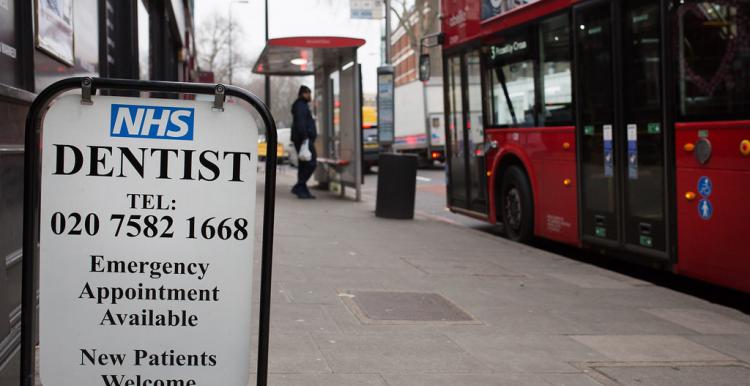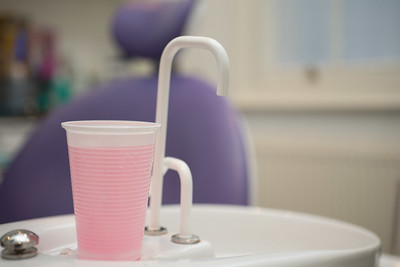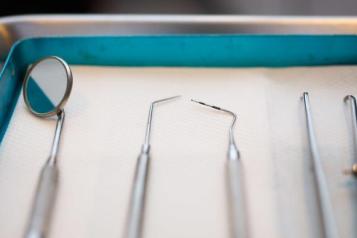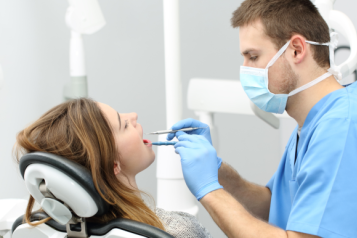Lack of NHS dental appointments widens health inequalities, warns Healthwatch

Healthwatch England warns that health inequalities are widening as people in the North West are struggling to pay for dental care.
A representative poll of 2,026 adults based in England found nearly half (49%) of respondents felt NHS dental charges were unfair; this jumped to over half (55%) for the North West.
The poll, which looked at people’s experiences of NHS dentistry, including costs associated with dental care, found the following:
- 4% of respondents in the region said they found it difficult to book an NHS dental appointment, whilst one in five (20%) couldn’t access all the treatments they needed.
- One in four (24%) respondents said they had to pay privately to get all the treatment they required.
- One in four (13%) also reported they had to pay privately when they booked their dental appointment. Similar numbers (25%) said their NHS dentist didn’t explain the costs before starting their treatment.
- 7% reported that their NHS dentist charged more for the treatments than the advertised NHS charges.
- The national picture is also bleak: almost a third (29%) of people said lack of access to dental care led to more serious problems, making them feel anxious. Others said lack of timely dental care made it hard to eat or speak properly (16%); and made them avoid going out (14%).
The shortage of NHS appointments has hit people on low incomes hardest, meaning they are less likely to have dental treatment, compared with those on higher incomes. The poll suggests that people from social economic group (SEG) A are six times more likely to be able to pay for private dental care if they can’t find an NHS dentist to treat them than people from SEG E (48% and 8%, respectively).
The new data also reveals a significant North-South divide when it comes to affordability of dental care. While one in five people (20%) living in the South said they can afford private dental care if they can’t find an NHS dentist, in the North, just seven per cent said they could afford private treatment.
Overall, 38% of the respondents feel they are less likely to visit a dentist, despite clinical guidelines recommending regular dental check-ups to keep people’s mouths healthy.
The findings come as more than 2,000 dentists quit the NHS last year, according to new data obtained by the Association of Dental Groups under freedom of information laws, suggesting a growing trend towards private provision.
Healthwatch England has repeatedly raised concerns over the last two years as the twin crisis of access and affordability has continued to grow. Between October 2021 and March 2022, the Healthwatch network heard from 4,808 people about their experiences of dental care, many of whom were struggling to access timely care.
Healthwatch is therefore making renewed calls on NHS England and the Department of Health and Social Care to put a reformed dental contract in place before formal responsibility for dental services passes to the 42 new Integrated Care Systems in April 2023.
Louise Ansari, national director at Healthwatch England said:
“Access to NHS dentistry has been one of the most significant issues people have raised with us in the last two years. There is now a deepening crisis in dental care, leaving people struggling to get treatment or regular check-ups on the NHS.
“The shortage of NHS appointments is creating a two-tier dental system, which widens inequalities and damages the health of the most disadvantaged communities. With millions of households bearing the brunt of the escalating living costs, private treatment is simply not an option and even NHS charges can be a challenge. This needs urgent attention if the Government is to achieve its levelling up plan and tackle health disparities.
“We are once again calling on the Department of Health and Social Care and NHS England for greater ambition and urgency from NHS dental reform plans to create a fair and inclusive dental service. We strongly recommend that a new dental contract is in place before Integrated Care Systems take on formal responsibility for dentistry from next April.”
Lydia's story
Lydia, from Somerset, has been suffering from gingivitis, and her gums frequently bleed when she brushes her teeth. On top of this, she needs a couple of new fillings and wisdom tooth removal. Not being able to find an NHS dentist in her area, she gave in and reached out to a private provider.
“Sitting in the dentist's office, listening to the list of treatments, the cost of £1,100 brought me to tears. These costs were on top of the £50 I had to spend to have her appointment,” Lydia said.
Lydia is constantly worried about her dental problems. “Whenever I eat and feel a twinge my heart drops. I panic that something terrible is happening.”
She thinks that the NHS needs to view dental care as just as important as other aspects of healthcare. She thinks the two shouldn't be separate, and dental care should be available at no cost – just like other areas of the NHS. “MPs have money to get care if they need, most people don't. There's no version of private dentistry that's affordable. The word affordable is a slap in the face.”

Healthwatch England will be sharing the new findings on social media using the #fixNHSdentistry hashtag. Join the conversation.
About the poll
Yonder Data Solution carried out a poll of 2,026 adults (aged 18+) based in England for Healthwatch England in February 2022.


